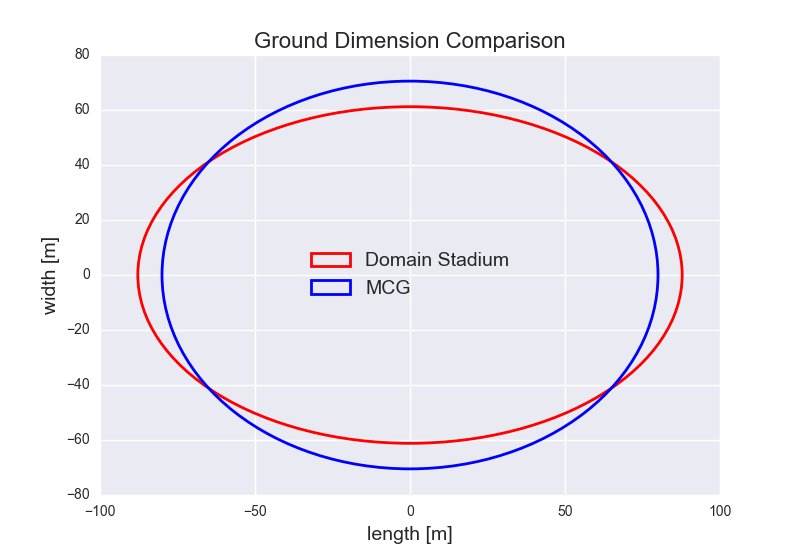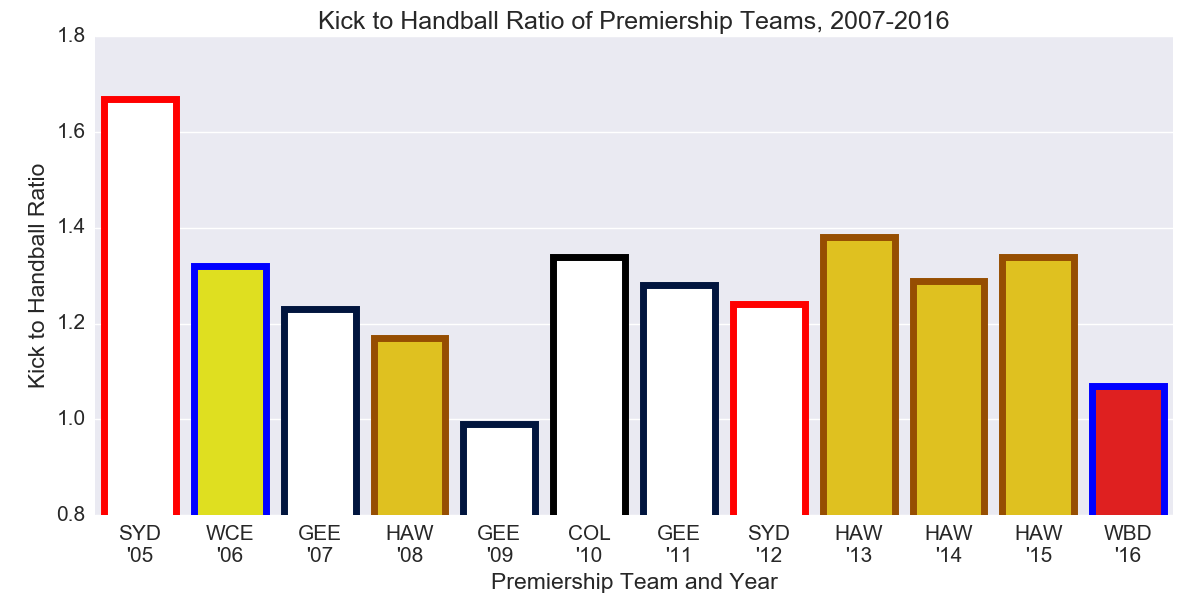AFL Round 10: West Coast Eagles vs. GWS Giants
Sunday Afternoon, 28th May 2017 at Domain Stadium
----------
8 seconds… a goal and they win it, Naitanui, he gets the kick away, OH HE HAS! OH. MY. GOODNESS. Is this one to remember?
Jason Dunstall and Dwayne Russell in commentary for Fox Sports
GWS vs. West Coast, Spotless Stadium, August 13th 2016
Indeed it was one to remember, but perhaps it has been too easily forgotten. GWS were sitting in the Top 4 and a strong favourite heading into that Round 21 clash against West Coast at Spotless Stadium. Hence, the win away from home was a significant victory for the Eagles and certainly not a match you would expect from a flat track bully, especially in the manner in which they fought back after being 4 goals down at 3QT. And if you had any doubts, West Coast did it again two weeks later in Round 23, knocking off Adelaide at the Adelaide Oval, and in the process relegating Adelaide from a place in the Top 4. So why then has the flat track bully tag stuck with the Eagles?
Well clearly it’s their away form in Melbourne that is preventing the Eagles from shaking off this tag. In their last 3 visits to Melbourne, West Coast have been comfortably beaten by Essendon (Etihad Stadium), Hawthorn (MCG) and Richmond (MCG). Bad losses in front of the cut-throat Melbourne AFL media is never a good idea, but the aforementioned wins late in the 2016 season suggested that the Eagles are capable of winning big games away from home.
Let’s examine the data in a little more detail, Table-1 and Figure-1 present West Coast’s record against top 8 teams [1], both home and away, since the start of 2016. Their 66% win-loss record at home against top 8 teams demonstrates their strength at Domain Stadium. Their 37.5% win-loss record away against top 8 teams is not a bad return, although none of those wins have come in Victoria. Since Grand Final day in 2015, when their zonal defence (otherwise known as the Weagles Web) got dismantled by Hawthorn, the perception has been that the Eagles cannot win on the MCG. And the stats back this up, with the Eagles having played 5 times at the MCG since that day, for only 1 win – a narrow 7 point win against the lowly Blues in Round 17 last year.
Table-1: West Coast matches against top 8 opposition since start of 2016
Figure-1: West Coast win/loss record against Top 8 opposition since the start of 2016
The reason often given for West Coast’s struggles on the MCG is the inability of the team to adjust to the wider (and shorter) confines of the MCG, in particular the implementation of the Weagles Web. This spatial defence enables the Eagles to lock the ball in their forward half of the ground and prey on intercept possessions. The system is dependent on leadership, feedback and voice, requiring constant communication, direction and organisation [2]. Hence, it is no surprise that Adam Simpson in an interview this week blamed their poor performance against Essendon at Etihad Stadium last week on the players not fulfilling their roles, rather than any mention about ground dimensions. But the dimensions are a fundamental component of the strategy, and the wider the ground the more difficult it is to use zonal marking. Figure-2 presents an overlay of the dimensions of the MCG (Length = 160 m, Width = 141 m) and Domain Stadium (175.6 m, 122.4 m). The change in dimensions appears only subtle, but the affect on the Weagles Web is dramatic. Its importance is emphasised when you consider the two interstate grounds where they have had significant wins in 2016-17, the Adelaide Oval and Spotless Stadium. Figure-3 presents an overlay of the dimensions of both these grounds in comparison to the MCG and Domain Stadium. Both stadiums are similarly narrow to Domain Stadium.
Figure-2: Ground Dimension Comparison – Domain Stadium and the MCG
Figure-3: Ground Dimension Comparisons
If you separate long and narrow grounds (length > 160 m, width < 130 m) from the rest, West Coast’s record on these grounds is remarkable, as summarised in Figure-4. West Coast has won 19 of 22 games on long narrow grounds since the start of 2016. Their only 3 losses were away against Geelong at Simonds Stadium (Kardinia Park) and 2 home losses at Domain Stadium to Adelaide and of course to the Western Bulldogs in the Elimination Final on the way to their famous premiership. So the flat track bully tag may be off the mark, rather they are a narrow track bully. But regardless if their inability to adjust to the wide Melbourne grounds is tactical or mental, it is something they will need to overcome if they ever want to win on Grand Final Day at the MCG.
Figure-4: West Coast win/loss record on Long & Narrow grounds since the start of 2016
What about GWS? Figure-5 presents GWS’s record against top 8 teams both home and away since the start of 2016. Their record appears remarkably similar to West Coast. However, their 2 away wins may be misleading. One was an away win against Sydney at Stadium Australia, not exactly unfamiliar territory. The second win was against North Melbourne in Round 23 last year at Etihad Stadium. North Melbourne’s form had fallen off a cliff in the second half of last year (only 3 wins post Round 9) so that win against a Top 8 team comes with a significant asterisk.
Figure-5: GWS win/loss record against Top 8 opposition since the start of 2016
After the win against Collingwood 2 weeks ago, West Coast remains the last team yet to be beaten by GWS. Although, the similar dimensions of Spotless Stadium to Domain Stadium mean a trip to Perth may be the best place for GWS to shake off their own flat track bully tag and finally beat a strong team away. As for West Coast, their record at Domain Stadium is undeniable, regardless of how bad they were against Essendon last week. In the two previous bad losses in Melbourne this year, they bounced back with strong wins at home the week after. We have to wait another month before we see West Coast back in Melbourne, with the Round 15 clash against the Western Bulldogs likely to be another strong test. But for this week, I expect West Coast and GWS to maintain their stereotypes.
West Coast to win by 10 points
----------
Post Match Comments:
Final Score: West Coast 14.6.90, GWS 14.14.98
The Giants can finally shrug off their own flat track bully tag with an impressive 8-point win. And in doing so they have now finally achieved a win against all other 17 AFL clubs. Most impressive was their match winning performances in the last quarter when the game was there to be won. In particular, Toby Greene was instrumental with his two clutch last quarter goals. As for West Coast, there is potentially excuses in that their star forward Josh Kennedy picked up an untimely injury when the game was in the balance early in the last quarter. But the loss at home a week after their bad loss to Essendon in Melbourne means the naysayers will still be out in force.
----------
[1] A top 8 team in 2016 was a team that ended the home & away season in the top 8 positions on the ladder. A top 8 team in 2017 is a team that is in the top 8 after Round 9 of the season.
[2] Champion Data. (2016). “AFL Prospectus 2016”, Glen Luff, Victoria, Australia








